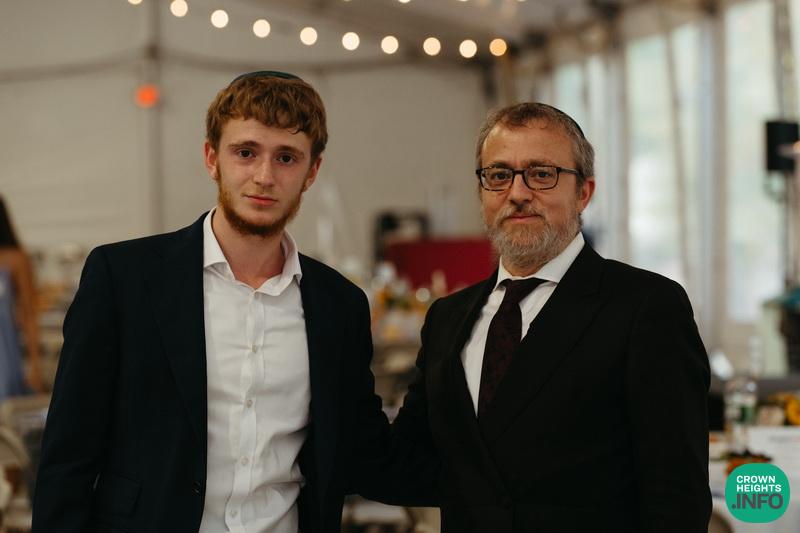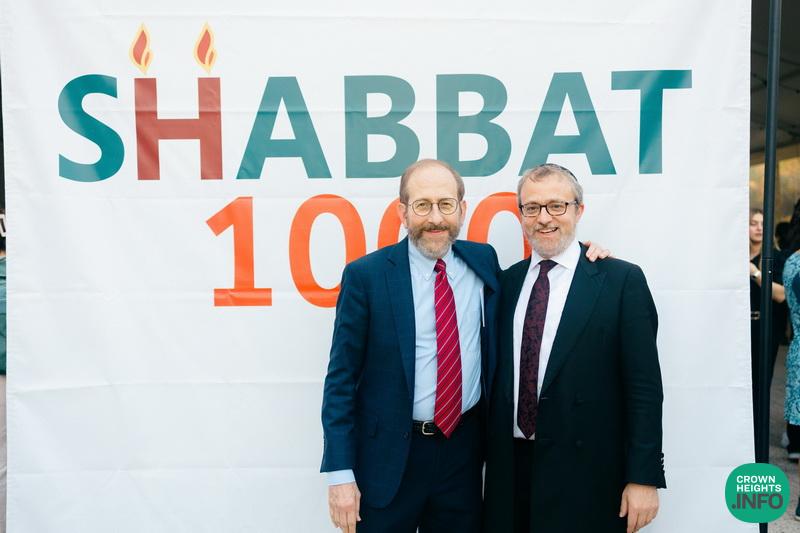
Cambridge Chabad Alleges Religious Discrimination in Zoning Denial
by Reuvain Bochardt – Hamodia
Chabad of Cambridge, Massachusetts, has filed suit against that city and its Board of Zoning Appeal, alleging religious discrimination over its denial of a zoning variance to renovate its Chabad House.
Chabad currently owns three buildings in adjacent lots, but each building, individually, is far too small to host its whole congregation and offer a full panoply of events, including prayers, Shabbos meals and other programs. Without a full-sized and fully functional religious center, Chabad says it has been forced to host these events outside, under a tent, even in the rain and in the freezing Massachusetts winters.
“Having a thriving religious center for Jews in Cambridge is imperative, especially now, when Jewish institutional presence is ‘sparse’ in the area and antisemitism is exploding,” says the suit, filed last week in U.S. District Court against the city and its Board of Zoning Appeal.
Chabad says the issue “could easily have been remedied with the renovations that Chabad proposed, in which it would build a connection between two of its three buildings, and with a Floor Area Ratio variance that Defendants routinely grant to similarly-situated applicants, both religious and non-religious.” However, the suit says, opponents “claimed that Chabad’s proposal for a fully-functional Jewish institution in the neighborhood would cause a ‘nuisance,’ that Chabad was greedily asking for a ‘handout,’ and that it simply should go elsewhere. One group engaged lawyers and PR consultants to cleanse its submissions of any overt signs of discriminatory intent; but the content of their messages and the intensity of their opposition made their true motivation clear,” namely that “they succumb[ed] to anti-religious opposition from Chabad’s opponents,” and that “their statements on the record reveal their personal discriminatory intent.”
The suit alleges that the Board of Zoning Appeal chairman specifically arranged to have a particular member who was a vocal opponent of Chabad’s plans sit for the hearing on Chabad’s case, knowing she would be the decisive vote against the plan.
Chabad says that the opposition was motivated by bigotry.
One opposition group, which calls itself the Kerry Corner Neighborhood Association (KCNA), initially argued that not only should Chabad not be granted its variance to expand, but that its current existence as a synagogue was illegal as well.
When that tactic did not work, the suit says, KCNA “sought legal representation and PR consultation, apparently to police the tone of its opposition and prevent inadvertent overt expressions of discrimination.”
“Other neighbors went even further than KCNA by invoking antisemitic tropes,” the suit alleges. “One person compared Chabad to a ‘hotel operator or landlord with high occupancy showing up in front of the Board and asking to double their space,’ and asking for a ‘gift’ from the city. Further evoking the antisemitic specter of the greedy Jewish landlord, the neighbor concluded by arguing that Chabad should simply purchase more property elsewhere, and that it is not entitled to ‘a $3-4 million handout.’” [Internal citations omitted throughout.]
Rabby Hirschy Zarchi, Chabad shliach to Cambridge, told Hamodia that 300 to 400 people make use of his Chabad House on a typical Shabbos, “and many more throughout the week.” The core community is Harvard students, but there are hundreds of others including students from MIT and other schools, as well as residents and families, including 225 children enrolled in its preschool.

“It was deeply disturbing and painful to see the bigotry and discrimination from our neighbors — who initially attempted to even challenge our very existence as a synagogue,” Rabbi Zarchi said. “When they saw that argument wouldn’t work, they revised their opposition to just wanting to ‘rightsize’ us, by reducing us to a size that is unsustainable.”
“In a city with close to 100 churches that tower over all other buildings in the vicinity, Cambridge Chabad should also be permitted to function and serve its constituents in a normal building, with a roof over our heads.”
Chabad is alleging violations of the federal Religious Land Use and Institutionalized Persons Act (RLUIPA), which prohibits zoning laws that substantially burden religious exercise; and the U.S. Constitution’s First and Fourteenth Amendment protections of free exercise of religion, due process, and equal protection; as well as provisions of Massachusetts’ Constitution and Civil Rights Act.
Yehudah Buchweitz, a partner at Weil Gotshal & Manges, who is heading a pro-bono team of attorneys for Chabad, told Hamodia, “Chabad’s complaint against the City of Cambridge is the latest unfortunate incident of a subgroup of zoning officials giving in to the wishes of biased community members,” and that “Chabad has no desire to have a protracted litigation but has no choice but to enforce its rights.”
Buchweitz has won or achieved favorable settlements in many religious land-use cases, most recently earlier this year when a settlement reached over the denial of a yeshivah’s land-use request forced the dissolution of an anti-Orthodox group in Rockland County, N.Y.
A spokesperson for the City of Cambridge declined Hamodia’s request for comment.












AH
Great bring it on